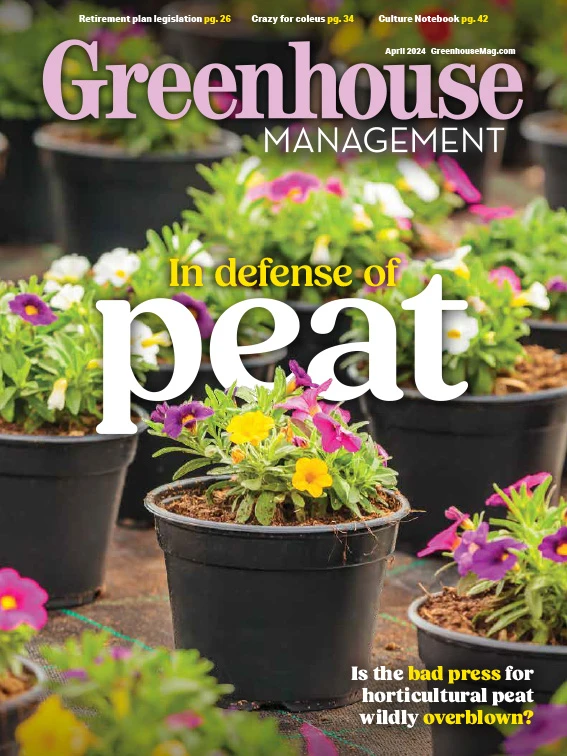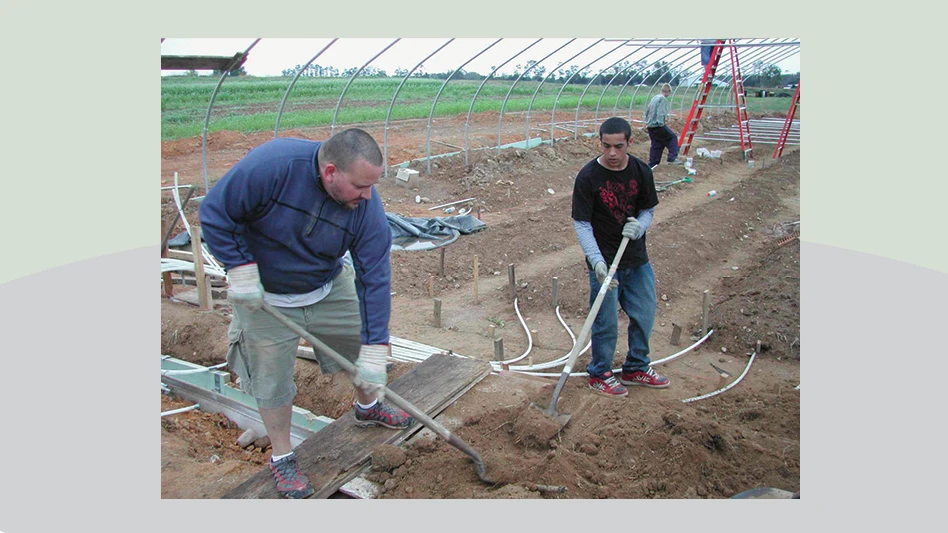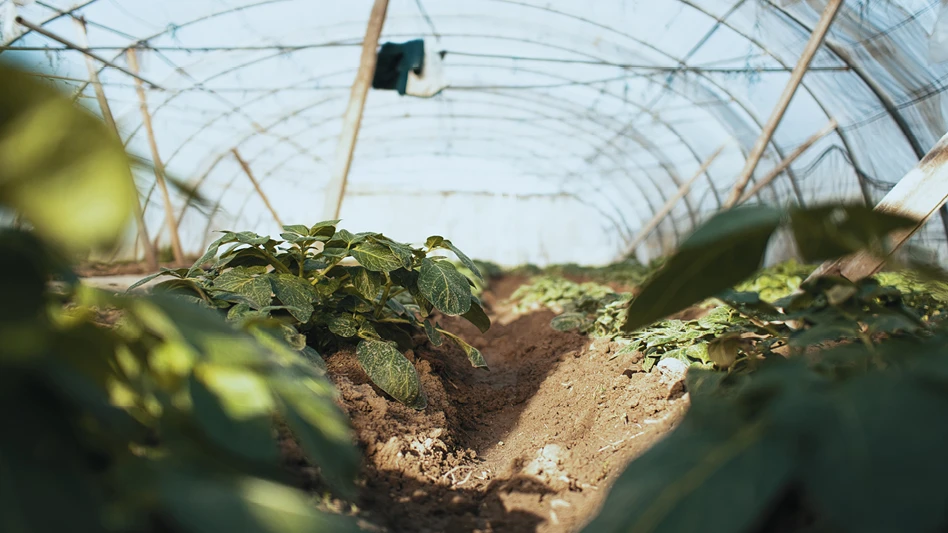
After moving from coast to coast working a variety of jobs, Martha Thomas finally found her calling in the greenhouse. But she soon discovered that one growing job was not enough to contain her passion for plants.
Growing up on the coast of Maine, Thomas’ early chores included mulching, weeding and mowing the large lawn and gardens around her family’s home. Although she initially headed to Allegheny College undecided about her major, she realized that she missed working outside and transferred to the University of Maine’s environmental horticulture program. To allay her father’s concerns that horticulture was just a hobby, not a career, she also earned an MBA from Norwich University in Vermont.
From there, Thomas traveled to the West Coast and back again, working at Paul Ecke Ranch, the world’s largest poinsettia producer, among other jobs in housing, retail and finance along the way. Ready to get out of the office for good, she landed a growing role at New Hampshire-based Shady Hill Greenhouses and Nursery 10 years ago.
Now as the perennial manager at Shady Hill, Thomas oversees 24,000 square feet of covered production space across 14 single-standing greenhouses, in addition to one acre of field mums. The retail operation, which spans 9 acres, also sells trees and shrubs, annuals, vegetables, poinsettias, hard goods and bulk supplies, in addition to offering landscape and hardscape services.
“I really enjoy the retail aspect of it because you’re not just growing plants; you’re making sure customers get what they need,” says Thomas, 35. “It’s nice to produce something and then see it go to its final destination.”

Growing for retail
All the greenhouses at Shady Hill are open to retail customers — which requires Thomas and her team to take care of plants and people simultaneously. “In a retail setting, everyone on the floor is on duty,” she says. Instead of having a dedicated growing team, “everyone wears many hats” as they pivot between watering plants, answering customers’ questions and other tasks as needed. “We’re always adapting to what the plants and the customers need,” she says.
The team at Shady Hill, which employs up to 50 people during peak season, has a lot of plant knowledge and passion. But if a customer asks a question they don’t know the answer to, “no one hesitates to ask for help,” Thomas says. “That’s one of the fun things about being in this industry: you’re always learning something new.”
Plus, Thomas offers plenty of ongoing training and coaching — especially when it comes to water management, which is her “top priority.” Although the shrubs, trees, mums and hanging baskets are on drip irrigation, Shady Hill still relies on hand-watering in the greenhouses. “When someone’s done watering a greenhouse, one of the managers or I will walk through and double-check,” she says. “It’s all about attention to detail.”

Building a wholesale business
Thomas estimates that Shady Hill grows about 70% of the plants they sell, “just because we don’t have enough space to grow everything.” Since she joined 10 years ago, the number of greenhouses on-site has doubled. To further expand their production space and potential market beyond the retail space, Thomas partnered with owners Ron and Kathy Hill about five years ago to launch a separate wholesale business called Thomas Hill Perennials.
In this dual role, Thomas grows perennials and fall annuals on about a quarter of an acre of field production at her house, just down the street from the retail location. Though most of her time is spent at Shady Hill, she’ll “pop in at lunchtime” to check on the crops on her 3-acre property.
While most of this wholesale plant material ends up at other local garden centers, the additional supply also benefits Shady Hill’s retail customers. “If a customer needs 12 rudbeckia but we only have eight [in the garden center],” Thomas says, “I’m jumping in my car and getting more so they don’t have to wait.”

Spicing things up
In addition to her full-time retail growing role and her wholesale side-gig, Thomas is exploring new outlets to share her passion for plants. Last year, she launched her own company, Pepper Row & Co., to sell hot sauce and other products made from peppers she grows on her property.
Last year, she grew 80 hot pepper plants, including scorchers like Trinidad Scorpion, Brain Strain, yellow Fatalii, Dragon’s Tongue and Chocolate habanero. This year, she plans to double that.
Her first product, Hank’s Hot Sauce, is a fiery concoction named after her dog. She sells it at Shady Hill and other local stores and plans to officially debut the brand at the Boston Sauce Party this April.
Managing all three operations is a juggling act, but “we all thrive in chaos here,” Thomas says. Whether she’s growing poinsettias or peppers, she’s proving that horticulture is much more than just a hobby.

Explore the April 2024 Issue
Check out more from this issue and find your next story to read.
Latest from Produce Grower
- Invest in silver
- VIDEO: Growing media for strawberries grown under different production systems
- Building the ‘Dream Greenhouse’
- Quality Horticulture announces expansion into U.S. from Canada
- Baptisia australis
- Breaking new ground
- AmericanHort accepting applications for HortScholars program at Cultivate'25
- The lights dim on Bowery Farming





